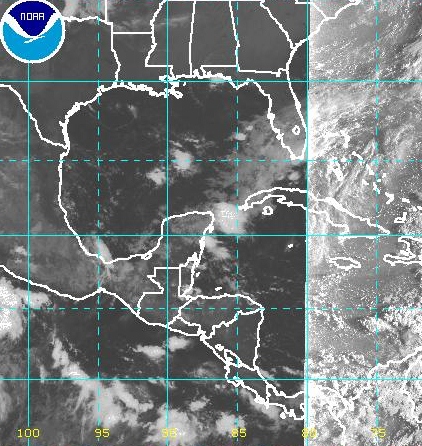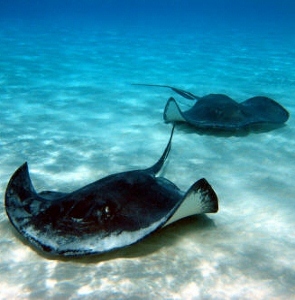Archive for September, 2012
Professionals opt to swap to teaching career
(CNS): In a bid to increase the pool of home grown teachers, the Ministry of Education has joined forces with the University of Sunderland in the United Kingdom to offer a local post graduate teaching course. Thirteen would-be teachers have signed up for the new Post-Graduate Certificate in Education (PGCE) one year course, including ten Caymanians. All of the graduates are professionals in other fields who have opted to make a career change to teaching. “We need passionate, dedicated, hardworking and highly-skilled teachers in our education system to shape our youth and provide our students with the best opportunities,” Rolston Anglin told the inaugural class.
The local manager for the programme is Cetonya Cacho, the former Principal of Bodden Town Primary School, who explained that the course is a blend of online and practical study. Theoretical course information, readings and assignments will be provided through online distance learning from the University of Sunderland and this will then be directly linked to school experience in classrooms in the Cayman Islands.
During the school experience, PGCE students will have opportunities to put theory into practice with the support of a mentor teacher,” she said. The mentors are experienced teachers from the Government’s Education System who have volunteered to provide this service.
Cacho said a large component of the course includes weekly workshops on national strategies and school initiatives, such as the Cayman Islands National Professional Standards for Teachers.
Mary Rodrigues, chief officer in the ministry, congratulated the candidates on passing the rigorous selection processes administered by the ministry and the University of Sunderland, and on their desire to become teachers. “Teaching is a wonderful profession that too many people overlook as a potential career path. Work hard and focus on the difference you can make in a child’s life,” she said.
The PGCE is offered annually, starting each September, to interested persons who hold a bachelor’s degree with a 3.0 cumulative GPA or higher. The main aim of a PGCE is to provide anyone aspiring to a career in teaching in primary schools with the professional training and experience necessary to develop as effective and reflective teachers.
Chief Education Officer Shirley Wahler said teachers have a great responsibility for every child in a classroom. “It is very important that, no matter how hard it seems, you have a positive attitude and create a positive learning environment," she advised the would-be teachers. “You control the weather in your classroom and as a result of this, your students control the climate of our country.”
For more information on the PGCE please visit www.education.gov.ky or email teachcayman@gov.ky.

Girls encouraged to join ranks of cadet corps
( CNS): With the first every female Commandant in the Caribbean region now at the helm of the local Cadet Corps the military boss is hoping to attract other young women to its ranks. Lieutenant Colonel Bobeth Daley-O’Garro said she wanted to see more females involvement and as adult instructors, as she believes the Corps is a great way to develop leadership skills. “The Corps is a place for women to thrive, build confidence, and learn about themselves,” she said recently. “Women may hold any position in the Corps, and female enrolment in the Cayman Islands has increased consistently over the last 10 years.”
CNS): With the first every female Commandant in the Caribbean region now at the helm of the local Cadet Corps the military boss is hoping to attract other young women to its ranks. Lieutenant Colonel Bobeth Daley-O’Garro said she wanted to see more females involvement and as adult instructors, as she believes the Corps is a great way to develop leadership skills. “The Corps is a place for women to thrive, build confidence, and learn about themselves,” she said recently. “Women may hold any position in the Corps, and female enrolment in the Cayman Islands has increased consistently over the last 10 years.”
Lt. Col. O’Garro holds a Master of Education in Counselling, a Bachelor of Science degree in Psychology (Major) and Sociology (minor), said that already half of the current recruits are female and the corps activities provide participants the opportunity explore various areas of interest.
Ten years after joining the Cadet Corps on secondment from the Royal Cayman Islands Police Service, she was appointed the first-ever female Commandant to be a chairperson of the Caribbean Commandant Association. She is a recipient of the Caribbean Cadet Medal for her service in the development of cadetting in the Cayman Islands and is also a recipient of the Cayman Islands Cadet Long Service Medal, Disaster Mitigation medal for services given during and in the aftermath of Hurricane Ivan, Dean and Paloma; as well as the Good Conduct and Meritorious Service Medal.
Major Ricardo O. Henry, Adjutant Training Officer said her work has been instrumental in keeping the Corps going. “She goes above and beyond the call of duty; is always the first to volunteer when help is needed and is seen at nearly all of our activities. She has a way of making Cadets, parents, and volunteers feel at ease and welcome. We are extremely proud and feel lucky to have her leading our Cadets,” he added.
The Cadet Corps has places for 70 recruits this year. The deadline for applications is this Friday 28 September and the programme is due to start 6 October. Interested persons can contact the Cadet Corp at 345 946 9810 for registration information or visit www.cicadetcorps.ky. Students attending JGHS, CHHS and Triple CCC can obtain forms at their schools.

Gas leak causes temporary supermarket shut-down
(CNS): Fosters supermarket in Savannah has re-opened the store was forced to close its doors to customers in the face of a gas leak on Wednesday morning. The Countryside branch of the local store was shut down by management until technicians dealt with the problem. “The store was temporarily closed for about an hour as there was a Freon gas leak,” Ayiesha DeCoteau the Marketing Manager stated. “To ensure the safety of our customers and employees and also ensuring they are provided with the best customer service and shopping experience possible we found it necessary to close the store until that situation was rectified.” The store has now resumed its regular business hours.

Professor continues push to exonerate Garvey
 (CNS): Following a popular presentation on 18 September at Miami Dade College, Florida, Professor Geoffrey Philp said he would be giving another performance of “Marcus Garvey: (Still) The Most Dangerous Black Man" next month. The lecture will support the ongoing drive to raise 2,000 signatures for a petition to persuade US President Barack Obama to exonerate the late Jamaican national hero. In 1925 Marcus Garvey began serving a five-year sentence in the US penitentiary in Atlanta, Georgia, for mail fraud. "The injustices committed against Marcus Garvey, including the denial of his most basic human rights will be highlighted," Professor Philp said about his second presentation.
(CNS): Following a popular presentation on 18 September at Miami Dade College, Florida, Professor Geoffrey Philp said he would be giving another performance of “Marcus Garvey: (Still) The Most Dangerous Black Man" next month. The lecture will support the ongoing drive to raise 2,000 signatures for a petition to persuade US President Barack Obama to exonerate the late Jamaican national hero. In 1925 Marcus Garvey began serving a five-year sentence in the US penitentiary in Atlanta, Georgia, for mail fraud. "The injustices committed against Marcus Garvey, including the denial of his most basic human rights will be highlighted," Professor Philp said about his second presentation.
The lecture is sponsored by the Institute for Civic Engagement and Democracy’s "Dive into Democracy" campaign and Philp combines texts, music, and video in his presentation on the man who inspired millions of followers with his messages of black pride and self-reliance.
The Jamaican government recently announced plans to introduce a new mandatory civics programme in its schools that will teach students Garveyism. Although students are taught some of the less controversial values the leader promoted, the school curriculum previously omitted any mention of Garvey’s promotion of a “Back to Africa” movement, his use of the title “provisional president of Africa” and a campaign for racial separation, born of the conviction that whites would never allow blacks justice. American civilrights pioneer W.E.B. Du Bois once called him “the most dangerous enemy of the Negro race”.
“The teaching of Garveyism in schools is something that politicians of all stripes have shied away from, partly because of their own intellectual ignorance and partly because they don’t know what to make of this complex subject,” said Robert Hill, a Garvey expert who is professor emeritus at the University of California, Los Angeles.
Born nearly 50 years after the abolition of slavery in Jamaica, Garvey founded the United Negro Improvement Association in 1914 on the island, and then built it into a mass movement in New York from 1919 to 1927. He established a network of “Liberty Halls” as venues for political debate, theatre and scholarship around black themes, raising awareness of African achievements and calling for economic empowerment to circumvent racism. Garvey urged people find pride in their African history and assured the descendants of slaves that there were no limitations to what they could accomplish.
A petition was launched earlier this year, which is the 125th anniversary of Garvey’s birthday, by the Celebrations Committee, Institute of Caribbean Studies, and the Rootz Foundation Inc, which launched the drive the same year that Jamaica celebrated 50 years of Independence.
“The petition has the full support of Dr Julius Garvey, Marcus Garvey’s son,” said Justin Hansford, legal counsel. “We hope that this effort will help to undo the historic miscarriage of justice.”
The petition currently has 1,805 signatures and can be signed at SignOn.org

Major Atlantic weather satellite out of action
 (CNS): An important weather satellite that monitors Atlantic hurricanes has been shut down, as a result of a number of technical glitches, National Oceanic and Atmospheric Administration officials have stated. The US weather agency has activated a spare satellite as a result of the erratic behaviour of the GOES-13, which tracks weather and hurricane traffic along the East Coast of the USA and across the Atlantic. NOAA said engineers shut down the satellite on Sunday and are still trying to diagnose the source of the problems. A spokesperson said there could be a decrease in the accuracy of weather forecasts and NOAA is checking to see if hurricane forecasting could be affected.
(CNS): An important weather satellite that monitors Atlantic hurricanes has been shut down, as a result of a number of technical glitches, National Oceanic and Atmospheric Administration officials have stated. The US weather agency has activated a spare satellite as a result of the erratic behaviour of the GOES-13, which tracks weather and hurricane traffic along the East Coast of the USA and across the Atlantic. NOAA said engineers shut down the satellite on Sunday and are still trying to diagnose the source of the problems. A spokesperson said there could be a decrease in the accuracy of weather forecasts and NOAA is checking to see if hurricane forecasting could be affected.
"GOES-14 will remain the primary GOES satellite over the Atlantic basin and Continental U.S. until the imager and sounder data issues on GOES-13 can be fully diagnosed and hopefully fixed," NOAA officials said Monday.
The failure of "GOES-13" has left a gap for meteorologists in the eastern Atlantic and experts say this is likely to make monitoring of tropical storms more difficult. According to Accuweather the substitute satellite may be better than nothing but not perfect as images over the eastern Atlantic, are distorted because of the position of the temporary replacement satellite farther west.

NRA denies forced job cuts
 (CNS): Government officials have denied speculation that the National Roads Authority (NRA) will be laying off as many as fifty members of staff before the end of the year. The deputy premier has stated that her ministry will not be making any forced job cuts and that the roads authority was managing its own budget and personnel issues. Officials from the ministry responsible and the NRA board chair held a meeting with employees at the authority Monday to quash what they said were rumours regarding redundancies. However, the need to cut costs was made clear by the board chair, Colford Scott, who asked staff to work together to achieve that.
(CNS): Government officials have denied speculation that the National Roads Authority (NRA) will be laying off as many as fifty members of staff before the end of the year. The deputy premier has stated that her ministry will not be making any forced job cuts and that the roads authority was managing its own budget and personnel issues. Officials from the ministry responsible and the NRA board chair held a meeting with employees at the authority Monday to quash what they said were rumours regarding redundancies. However, the need to cut costs was made clear by the board chair, Colford Scott, who asked staff to work together to achieve that.
The news of the meeting comes three months after Scott, in his capacity as board chair, wrote to the former NRA managing director, Brian Tomlinson, laying him off as a result of downsizing at the department.
Last week, speaking at a Public Accounts Committee meeting at the Legislative Assembly, Tomlinson said the NRA had been downsizing for the last three years and staffing levels had been reduced gradually through the departure of ex-pat workers on contract and retirees who were not replaced. Tomlinson was giving evidence in relation to a $3.5 million public roads project in Cayman Brac, where half a million dollars of public money had been used to pave private driveways and commercial parking lots.
He revealed that when the ministry began the Brac paving project, it was the NRA team and equipment which were moved over to the Sister Islands, even though that project was undertaken by the ministry and District Administration, not the NRA. Tomlinson revealed that during the controversial project the NRA had acted merely as an agent on the project and was essentially depleted of resources by it. This forced the NRA to turn to the private sector paving companies on Grand Cayman, such as ARCP and Island Paving, and contract them to undertake the regular maintenance of the roads on Grand Cayman.
Since then, there have been concerns from staff at the NRA that the authority could be downsized to merely a technical organisation, with the work of actually laying and paving roads being distributed between public works and the private sector companies on contract.
During Monday’s meeting with NRA employees Deputy Premier Juliana O’Connor Connolly reportedly denied that jobs would be forcibly cut from the authority.
“My ministry is not involved in compulsory personnel cuts,” she told NRA staff, according to a release from her ministry. Stating that the ministry was not directly involved in personnel mattersas that was in the hands of the board, she said she felt that she had to reassure staff that the rumors concerning 50 job losses at the authority before December were not true.
“It is not the ministry’s purview to lay off any staff at the NRA,” O’Connor Connolly said. “Government departments and statutory authorities have been given their own funds to work with and we have to live within our respective budgets. Just like we all do, even in our personal lives.”
Scott, the NRA chair, also denied any impending layoffs and asked staff to concentrate on working together to find ways to cut back on spending and maintain the good name of the NRA.
“We need to find ways to improve efficiencies, and continue our progress and staff can assist in that process. You all work in the field; you know your jobs, so if you have any suggestions on how we can fine-tune the work, then please let your supervisor know. We are all in this together and we must work together to find solutions,” he added.
Related articles:

CITA calls for stingray laws
 (CNS): The body which represents members of the tourism sector has called for changes to the marine conservation law to ensure the protection of stingrays in local waters. Thecall comes in the wake of news that four of the ten stingrays at a local captive dolphin facility had been taken from the population of rays at the Sandbar. The Cayman Islands Tourism Association (CITA) said that a recent survey of the declining numbers at Stingray City and the Sandbar is cause for concern and Cayman could lose its biggest national tourism asset if something is not done. Backing the currently shelved National Conservation Law, the association called on government to do something to protect all local fragile species.
(CNS): The body which represents members of the tourism sector has called for changes to the marine conservation law to ensure the protection of stingrays in local waters. Thecall comes in the wake of news that four of the ten stingrays at a local captive dolphin facility had been taken from the population of rays at the Sandbar. The Cayman Islands Tourism Association (CITA) said that a recent survey of the declining numbers at Stingray City and the Sandbar is cause for concern and Cayman could lose its biggest national tourism asset if something is not done. Backing the currently shelved National Conservation Law, the association called on government to do something to protect all local fragile species.
“The CITA supports the adoption of the long debated and long awaited National Conservation Law and immediately calls on government to enact legislation to protect southern stingrays,” CITA stated in a release on Tuesday. “Many local indigenous creatures — both land and sea — need protection, and CITA insists that the proper laws must be enacted and enforced to protect the fragile and important life forms that make Cayman their home.”
Focusing on the local population of wild stingrays, CITA noted that the limited protection the rays while swimming in the designated Wildlife Interaction Zones (WIZ) of Stingray City the Sandbar are insufficient as there is no legislation to prevent the removal of stingrays from locations outside the WIZ or other protected areas.
“Over the last three years, watersports operators have seen an alarming reduction in the populations of southern stingrays at both Stingray City and Stingray Sandbar. A recent survey of the stingray population by biologists confirms this observation,” CITA stated, adding that new regulations to the Marine Conservation Law must be added to include southern stingrays as a protected species.
“The Cayman Islands are world famous for many things, and for many visitors, it is the southern stingrays that are one of the most well-known images associated with the Cayman Islands. In fact, because of its success, many competing destinations around the globe have tried to copy Stingray City. CITA’s watersports members feel that if these stingrays are not protected, the Cayman Islands stand to lose its biggest national tourism asset,” the tourism body said as it pointed to the thousands of jobs and hundreds of businesses dependent on a healthy population of rays.
CITA estimated that revenues from Stingray City and the Sandbar exceed US$30,000,000 per year, not including revenues generated by other activities by the same visitors.
“Many of the stingrays in the WIZ areas have been 'entertaining' visitors and locals alike for many years and therefore can certainly be considered 'million dollar rays',” the organisation noted about the species, which despite that value remains vulnerable and unprotected by legislation.

Boat owners face tenfold fee increase
 (CNS): Updated – Owners of large boats and luxury yachts registered with the Port Authority will be paying ten times more tax on their vessels as a result of the fee increases in the 2012/13 budget. The licence for local boats (those normally operating in Cayman waters) exceeding 100 feet will now cost their owners $10,000 per year, up from $1000, which was the old fee for all vessels over 70 feet. According to the amended regulations, which have now been published, the fees begin on boats over 30 feet but fees for smaller boats remain the same. The amended fees under the new Port regulations do not apply to yachts registered under the Merchant Shipping Law unless locally owned and operating in Cayman territorial waters.
(CNS): Updated – Owners of large boats and luxury yachts registered with the Port Authority will be paying ten times more tax on their vessels as a result of the fee increases in the 2012/13 budget. The licence for local boats (those normally operating in Cayman waters) exceeding 100 feet will now cost their owners $10,000 per year, up from $1000, which was the old fee for all vessels over 70 feet. According to the amended regulations, which have now been published, the fees begin on boats over 30 feet but fees for smaller boats remain the same. The amended fees under the new Port regulations do not apply to yachts registered under the Merchant Shipping Law unless locally owned and operating in Cayman territorial waters.
Local boats under 21 feet are not taxed and owners are not required to pay a fee. Government has also chosen not to tax private wave runners and jet skis though owners renting these types of craft will pay $150 fee.
Vessels over 30 feet and under 40 feet will now attract a fee of $1,000 per annum, up from $300 in the previous regulations.
Boats over 40 but under 50 feet will go up from $300 to $2,000, while those between 51 and 60 feet will increase from $500 to $3,000.
Vessels exceeding 61 feet but and 70 feet will pay $4,000 instead of $500 and those over 70 feet will now cost their owners $5,000 per year.
Boats over 80 feet will be $6,000 and over 90 feet $7,000, with the vessels exceeding 100 feet now attracting a whopping annual license fee of $10,000.
See amended regulations below.

Cops start zero tolerance
 (CNS): With sufficient warnings about the new traffic law, which was implemented on Friday, the police say they will now be enforcing a zero tolerance policy on road offences introduced or reinforced in the new law. From motorists who text or use phones without a hands-free set to those splashing pedestrians when carelessly driving on wet roads, cops will be ticketing all rogue drivers. The new traffic regulations came into effect on 21 September heralding the long awaited traffic law passed in November. and police were out in force on Friday checking and collecting data regarding traffic offences, in particular making sure that drivers were aware of the new rules regarding phones.
(CNS): With sufficient warnings about the new traffic law, which was implemented on Friday, the police say they will now be enforcing a zero tolerance policy on road offences introduced or reinforced in the new law. From motorists who text or use phones without a hands-free set to those splashing pedestrians when carelessly driving on wet roads, cops will be ticketing all rogue drivers. The new traffic regulations came into effect on 21 September heralding the long awaited traffic law passed in November. and police were out in force on Friday checking and collecting data regarding traffic offences, in particular making sure that drivers were aware of the new rules regarding phones.
Superintendent Adrian Seales said police were encouraged that the majority of people seem to be adhering to the law by either using hands-free kits or not using the cell phones at all.
“It's clear that the education we have carried out with our partners in other agencies, the media and cell phone companies has, so far, been relatively successful. However, be assured that we will continue to rigorously enforce the law and target those who fail to abide by it," he added.
Police said Monday that just one person has received a ticket for talking on their phone while driving without a hands-free set.
Alongside the partial mobile phone ban in the car, amendments to the law to introduce careless driving could even see motorists significantly out of pocket for splashing pedestrians in wet weather.
“If someone drives through a puddle and splashes someone they can be charged with careless driving,” Seales said. “If the person goes to court, obviously it is left to the magistrate to levy a fine and it could be as much as $500.”
Other offences that fall under careless driving include using hazards when not in an emergency situation or driving with the full beam or high beam when other motorists are approaching. Although police say towing and impounding vehicles will be a last resort, they will be clamping down and ticketing illegal parkers.
Meanwhile, the 2012 edition of the new road code for the Cayman Islands is available from the all of Department of Vehicle & Drivers' Licensing (DVDL) locations on Grand Cayman and Cayman Brac.
"In addition to being bigger, the new Road Code has more detailed descriptions and is a more comprehensive guide of what is expected of road users,” said DVDL Deputy Director Richard Simms.
The 2012 Edition provides illustrations on how to navigate a roundabout, has updated signage and describes how all road users should conduct themselves, including horse riders, people who walk their dogs, pedestrians and cyclists.
For more information go to dvdl.gov.ky or call 945-8344. DVDL has two locations on Grand Cayman: Crewe Road DVDL Headquarters. Opening hours: 8:30 a.m. to 4:00p.m., Monday to Friday. Banks Plaza West Bay: 10:00 a.m. to 6:00 p.m., Tuesday to Friday and 9:00 a.m. to 4:00 p.m., Saturday. Cayman Brac: District Administration Building Opening hours: 8:30 a.m. to 4:00 p.m., Monday to Friday.

Marine creatures will head north as climate changes
 (CNS): Scientists are predicting major shifts in ocean ecosystems within the next 90 years as a result of climate change. A new study published in Nature Climate Change looks as the distribution of various open ocean animals in the North Pacific and explores how that could change over the next century as global sea temperatures increase and productivity levels shift. The researchers found that some critical ocean habitats could undergo significant changes in location, moving more than 600 miles from where they are now, while other habitats could remain relatively unchanged.
(CNS): Scientists are predicting major shifts in ocean ecosystems within the next 90 years as a result of climate change. A new study published in Nature Climate Change looks as the distribution of various open ocean animals in the North Pacific and explores how that could change over the next century as global sea temperatures increase and productivity levels shift. The researchers found that some critical ocean habitats could undergo significant changes in location, moving more than 600 miles from where they are now, while other habitats could remain relatively unchanged.
Loggerhead turtles, sharks and blue whales may face the harshest impacts of climate change while some seabirds may actually benefit. Not only are species at risk, but coastal communities and industries could feel the impact since top predator habitat shifts can result in the displacement of fisheries and ecotourism.
"For species already stressed by overfishing or other human impacts, increased migration time and loss of habitat could be a heavy blow," said Elliott Hazen, a National Oceanic and Atmospheric Administration researcher on the project who is affiliated with the Center for Ocean Solutions at Stanford university, according to the college news.
"But if we can build some plausible scenarios of how marine ecosystems may change, this may help efforts to prioritize and proactively manage them."
See full study here